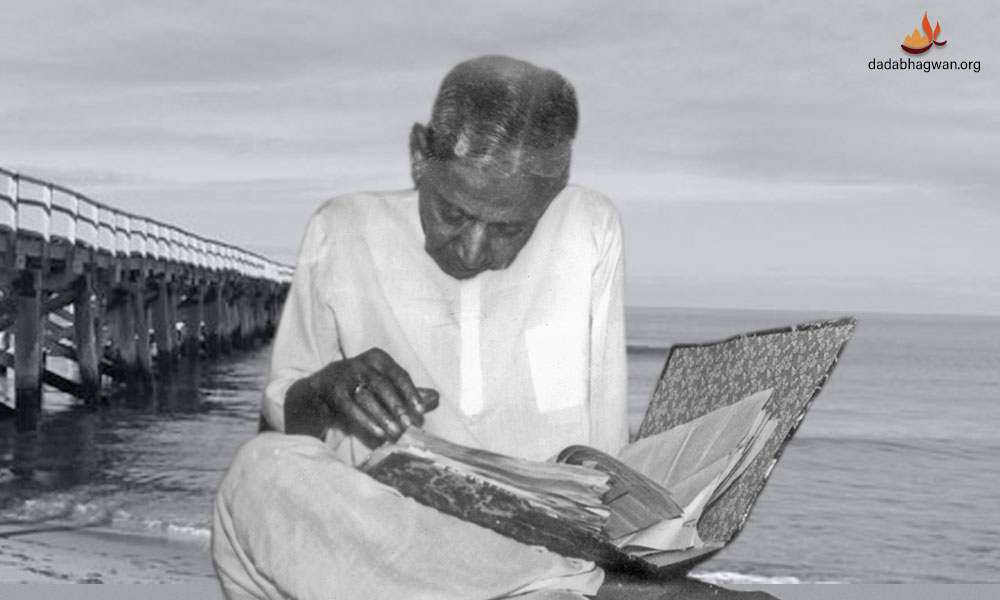Professional Life
Working Life of the Gyani Purush: Principles of Business Ethics
At a young age, Param Pujya Dada Bhagwan entered the field of construction as a contractor. Despite being a worldly person, the people around Him considered Him as someone who embodied divine traits. He was regarded as a very kind and caring man, who showered love upon everyone. He ran a very successful business and He made a conscious effort not to let any dishonest money enter into His business. If for some reason it did, Param Pujya Dadashri would leave that money within the business and not spend it in His personal use.

Ethics in Finance – Before Enlightenment
Param Pujya Dada Bhagwan had decided to keep any profit or loss made by the business, within the business. He would only take home the amount of money He would have earned as a salaried employee! The thousands earned in the business were spent when problems in the business arose.
He saw business as a play of karma: profit as a result of merit karma and loss as a result of demerit karma. Hence, He believed that the resultant profit will not increase, even by a penny, if one conducts a business with dishonesty. While running His business with these principles, He witnessed neither a shortage nor abundance of money.
Loss in Business – A Life Example
Before enlightenment, Param Pujya Dadashri’s business once suffered a loss. Explaining the situation, He later mentioned that He was worrying and was restless all night long due to this loss. Then a thought arose within Him. He asked Himself, who else is equally worried at this time due to this loss? He realized that neither His business partner nor His family were worried. His family wasn’t even aware of the loss and yet things were fine for them. He considered His worry foolish, thinking that if others, who were His partners were not worrying, why should He carry the load of worries alone? With this practical understanding, He never experienced any worries in the matter associated with business.
Ethics in Finance – After Enlightenment
Param Pujya Dadashri never accepted money from anyone even for His most crucial expenses. After enlightenment, He traveled extensively for spiritual discourses by car, train, or plane, using His own money. Many of His followers offered Him cash and gold, but He never accepted any of it. For those who had an earnest desire to give, He suggested they give for the benefit of others, to temples or to the hungry. However, He only made these suggestions after He was sure that the money was being offered willingly, was within the means of the donor, and was with the consent of the entire family.
Dealing with People in Professional Life
Param Pujya Dadashri ran His business with a partner for forty-five years without having a single dispute within their partnership. He believed that internal difficulties are bound to happen in a business but, dealing with difference of opinions with confrontation was the wrong approach. His partner never developed any negative feelings towards Param Pujya Dadashri, even though they were in business together all the time. He actually developed such an affection for Param Pujya Dadashri, that he took on the responsibility of the business and allowed Param Pujya Dadashri to continue doing His spiritual work. His partner told his own children that Param Pujya Dadashri’s presence was his wealth, and that he never ran short of money doing business with Him.

Param Pujya Dadashri, from His own life experiences, introduced the concept of a ‘counter-pulley’, which is useful in dealing with people in general. He used an analogy of an engine, which runs at a speed of 3000 rpm (revolutions per minute) destroying a pump that runs at 1500 rpm, when they were directly connected. In this case a counter-pulley needs to be placed in between the two in order for the pump to receive the cycle of 1500 rpm. Likewise, a person who has fast intellectual revolutions and a high grasping power should apply a counter-pulley while dealing with a person with slower revolutions. This adjustment allows one to prevent frustration by not seeing deficiencies in others, making worldly interactions conflict-free.
subscribe your email for our latest news and events





